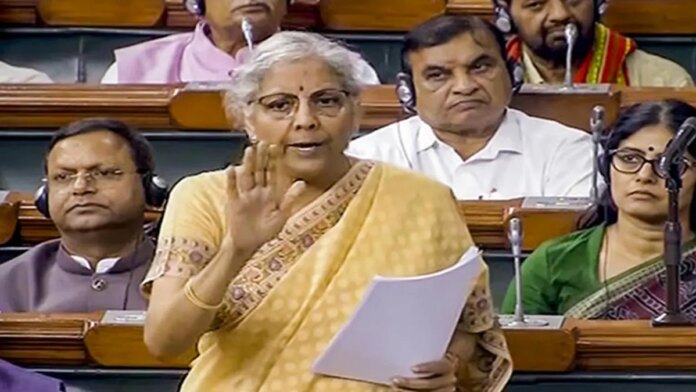The new Income Tax Bill, 2025 was passed in the Lok Sabha on Monday without debate. Earlier today, Finance Minister Nirmala Sitharaman reintroduced the Income-Tax (No 2) Bill in the Lok Sabha, days after it was withdrawn in the House to incorporate key recommendations of the Select Panel of the Lok Sabha.
One more bill – Taxation Laws (Amendment) Bill – was passed by the Lok Sabha today. The bill aims to provide tax exemptions to subscribers of the Unified Pension Scheme.
Both these bills were passed in the House by voice vote without any debate amid strong protests by Opposition over certain issues.
The government has included “almost all of the recommendations of the Select Committee” in the revised Income Tax Bill. In addition, suggestions have been received from stakeholders about changes that would convey the proposed legal meaning more accurately.
Introducing the Income-Tax (No.2) Bill, 2025, FM Sitharaman said the bill seeks to consolidate and amend the law relating to income-tax and will replace the Income Tax Act, 1961.
The government formally withdrew the old draft of the Income Tax Bill, 2025 introduced in Parliament on August 8. This is the same bill which was introduced during the Budget session in February and was immediately sent to the Select Committee.
“Almost all of the recommendations of the Select Committee have been accepted by the government. In addition, suggestions have been received from stakeholders about changes that would convey the proposed legal meaning more accurately,” said the statement of objects and reasons of the bill.
“There are corrections in the nature of drafting, alignment of phrases, consequential changes and cross-referencing. Therefore, a decision has been taken by the government to withdraw the Income-tax Bill, 2025 as reported by the Select Committee. Consequently, Income-tax (No. 2) Bill, 2025 has been prepared to replace the Income-tax Act, 1961,” the statement said.
Select Committee made more than 285 recommendations
After four months of intensive review, the committee prepared an over 4,500-page report with more than 285 recommendations. The purpose of these suggestions was to simplify the language of the law, bring clarity in the provisions and make compliance easier for taxpayers. Now the government has presented a new draft incorporating these changes.
ALSO READITR filing AY2025-26 deadline extended for non-audit returns – What is status for audit cases? » Read More


